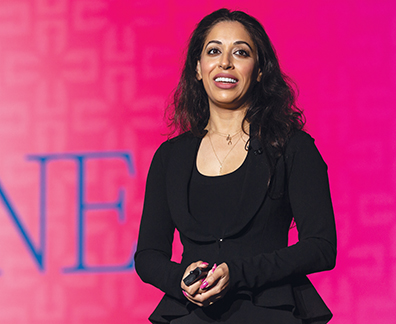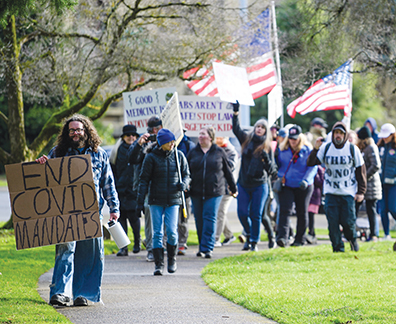By JULIE MINDA
Medical misinformation and pseudoscience spread like wildfire in today's hyper-connected world, and truth travels so much more slowly. One reason that falsehoods, including untruths about medical treatments, take root so quickly is that they often spread among people who get validation by belonging to a like-minded group.

In an information echo chamber, misinformation can become entrenched beliefs that are linked to people's identity, and at that point, it can be difficult to convince individuals that their beliefs are untrue. In a June 6 keynote at the Catholic Health Assembly in Indianapolis, Dr. Seema Yasmin told the audience that understanding these concepts can be essential to determining how best to counter medical misinformation. Yasmin directs the Stanford Health Communication Initiative. She is an Emmy Award-winning medical journalist, public health physician and clinical assistant professor at the Stanford University School of Medicine where she oversees research and education on epidemics and the "contagious nature of information."
She told an audience of Catholic health care leaders: "We are our own best hope against the spread of misinformation. We are the antidote. … It requires compassion, empathy and patience, which is easy to talk about but hard to practice." She said physicians should aim to build connections of trust and respect with patients who think differently than they do in order to understand what those patients' motivations are and to seek mutual understanding with them.
Longtime issue
Yasmin opened her talk with a description of raucous anti-masking protests and debates in the San Francisco Bay area that took place during the 1918 flu pandemic.

She said while false beliefs are an age-old problem, it's only been in recent years that misinformation has spread at dizzying speed. She attributed this acceleration in part to the deepening polarization in society. People have divided into "tribes" and their shared beliefs are tied into their sense of belonging to their group of choice. Countering entrenched beliefs can feel like an assault on people's sense of identity, said Yasmin.
She noted that this banding together in groups is a deeply ingrained survival instinct, from when people practiced safety in numbers to fend off threats.
Illusion of explanatory depth
Yasmin said research has shown that people can wildly overestimate their own understanding of complex theories. She said this overestimation is called the "illusion of explanatory depth." The research
she cited also reveals that when people are convinced through factual information of their own shallow level of understanding of a topic, they often will reexamine their beliefs. They will not hold as tightly to misinformation.
Yasmin said a takeaway is that people may relinquish even deeply held beliefs if someone helps them understand where their thought process is off.
She advised that people seek deep, meaningful connectivity with others of differing opinions and plumb what they are thinking and why. People should try to establish common ground and that will help them better communicate and move toward the truth.
The goal is not always to change people's minds outright but to come to a mutual understanding, a greater chance of understanding one another, Yasmin said.
